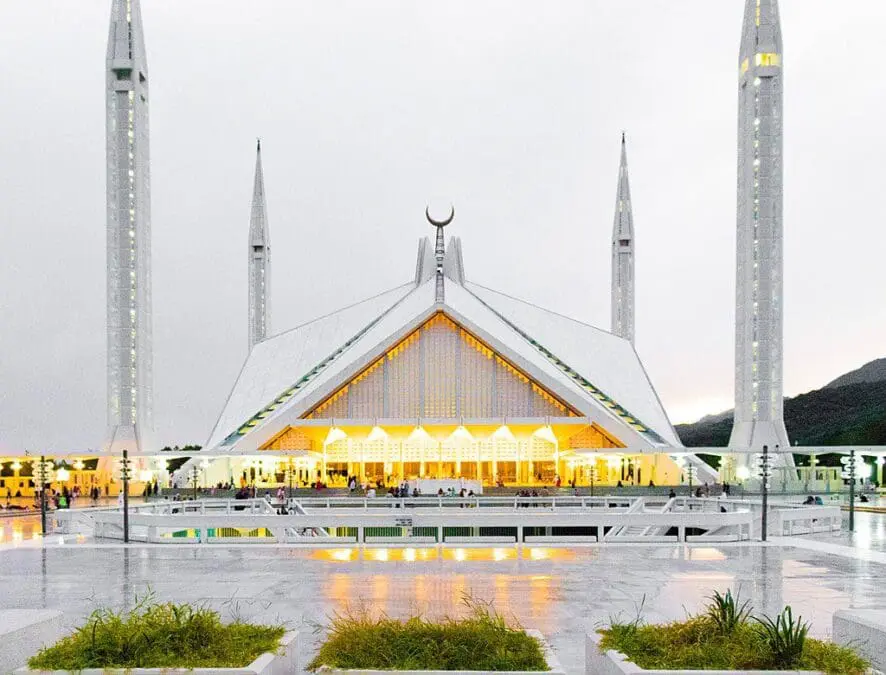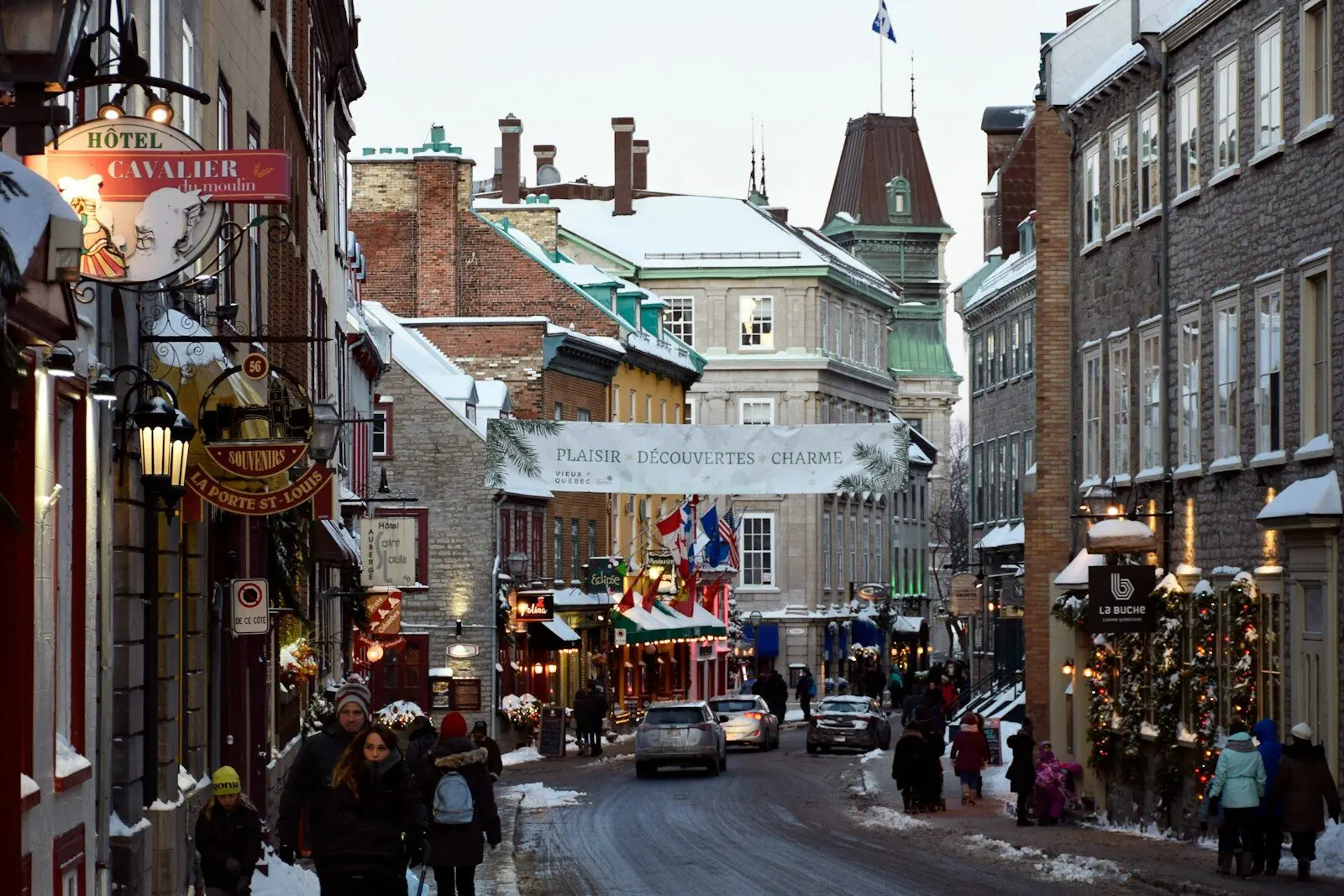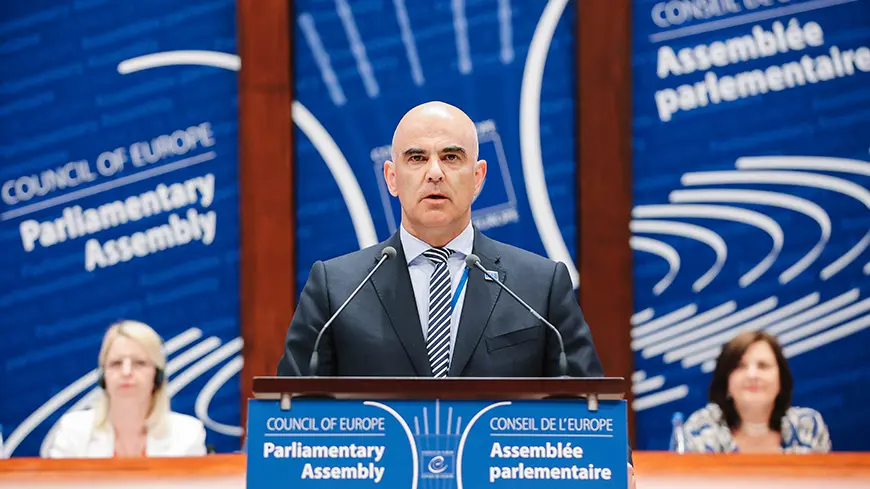The EU Special Envoy on Freedom of Religion or Belief, Mr Frans van Daele, is on the eve of carrying out a fact-finding mission in Pakistan. The dates announced two months ago were 8-11 September and it was quite recently confirmed that he would be in Islamabad this week. At this stage, it is not known who will be his interlocutors as there was no official announcement about his mission, his program and his objectives.
However, it can be expected that he will raise a number of issues concerning the egregious human rights violations particularly affecting local religious minorities and it is to be hoped that he will collect useful and concrete information for the European Commission in relation with the commercial privileges of the GSP+ status granted by the EU to Pakistan. Last but not least, we would recommend him that he visit a person imprisoned on blasphemy allegations. This would be an encouragement to all the religious prisoners of conscience – over 50 of them, according to the Database of documented cases of the US Commission on International Religious Freedom – and to Pakistani civil society.
Human Rights Without Frontiers has contacted representatives of the Roman Catholic Church, Catholic associations, Ahmadi groups, lawyers and human rights activists in Pakistan but they were unaware of that visit or said they had not received any invitation for a meeting. A number of talks will certainly take place in the premises of the EU Delegation to Pakistan.
The commercial privileges linked to the GSP+ status
Pakistan is a country of high concern for its systematic and serious religious freedom and other human rights’ violations.
The GSP+ – Generalised System of Preferences – is an EU scheme which grants privileged access (reduced or zero duties) to the EU market to products from certain less developed countries. When the eligible country gets GSP+ status, its products across approximately 66% of all EU tariff lines enter the EU market with 0% duties BUT to become and to remain a beneficiary of the GSP+ status, the beneficiary country must demonstrate a tangible progress on the implementation of27 international treaties regarding labor rights, good governance, climate and environment, and human rights (including freedom of religion and other rights pertaining to religious minorities and their members).
The GSP+ status, religious freedom and human rights
On 29 April 2021, the European Parliament called on the Commission and the European External Action Service to immediately review Pakistan’s eligibility for GSP+ status in the light of recent human rights abuses, as “the government systematically enforced blasphemy laws and failed to protect religious minorities from abuses by non-state actors, with a sharp rise in targeted killings, blasphemy cases, forced conversions, and hate speech against religious minorities (…); whereas abduction, forced conversion to Islam, rape and forced marriage remained an imminent threat for religious minority women and children in 2020, particularly those from the Hindu and Christian faiths”.
On 16 January 2023, six UN Special Rapporteurs expressed alarm at the reported rise in abductions, forced marriages and conversions of underage girls and young women from religious minorities in Pakistan and called for immediate efforts to curtail these practices and ensure justice for victims.
On Jan. 17, 2023, the Pakistan’s National Assembly unanimously voted to expand the country’s laws on blasphemy extending the punishment to those deemed to have insulted the Muhammad ‘s wives, family and companions, with 10 years in prison or life imprisonment. The Supreme Court of Pakistan has asked the Government, through its police, to deal more carefully with blasphemy cases and avoid the misuse of blasphemy laws (*), in a process in August 2022.
About the desperate situation of the Ahmaddiyya community in Pakistan
The Ahmadiyya Muslim Community in Pakistan is enduring an alarming rise in violence and systemic persecution in 2024, with a disturbing trend of targeted murders, desecration of mosques and graves, and the continued denial of basic civil rights.
In January 2024, Punjab police desecrated 65 Ahmadi tombstones in Musay Wala, claiming to act on orders from a local official known for persecuting Ahmadis. These acts of desecration not only violate the sanctity of the community’s religious sites but also send a chilling message that their existence is unwelcome in Pakistan.
This year, up to July 2024 alone, four Ahmadi Muslims have been brutally murdered in religiously motivated attacks. These include the killing of Tahir Iqbal, the president of the local Ahmadiyya Muslim Community in Bahawalpur, who was gunned down by motorcyclists in March. In June, a 16-year-old madrassa student murdered two Ahmadi men, Ghulam Sarwar and Rahat Ahmad Bajwa, in separate incidents in Mandi Bahauddin, citing religious motives. The violence continued in July when Zaka ur Rehman, a 53-year-old dentist, was shot dead in his clinic in Lala Musa, Gujrat. These heinous acts reflect the extreme vulnerability of the Ahmadiyya Muslim Community, who are routinely targeted for their faith, with little accountability for the perpetrators.
The violence against the community extends beyond physical attacks to the systematic desecration of Ahmadi Muslim mosques and graves. In February 2024, extremists armed with guns, hammers, and shovels attacked an Ahmadi mosque in Kotli, Azad Jammu and Kashmir,destroying its minarets and brutally beating worshippers. In June, during Eid celebrations, a mob of 150 people attacked another Ahmadi mosque in Kotli and across Pakistan more than 30 Ahmadis were arrested – including a 13 year old boy – for celebrating the Islamic festival of Eid.
About the desperate situation of Christians, Hindus and Sikhs in Pakistan
Christians have been repeatedly victims of mob violence following blasphemy allegations.
On 16 August 2023, a violent mob of hundreds of people ransacked and torched nearly two dozen churches, attacked the homes and businesses of the Christian community, and the office of the local assistant commissioner in Jaranwala. According to estimates compiled by Faisalabad’s district administration, at least 22 churches and 91 houses were ransacked by mobs.
As per police and local sources, the violence erupted after some locals alleged that several desecrated pages of the Holy Quran were found near a house at Cinema Chowk in Jaranwala, where two Christian brothers resided.
On early July 2024, it was reported that Ehsan Shan, a Christian in his early 20s, had been put put on death row for reposting on his TikTok account an image of the text of the Qu’ran damaged in Jaranwala on 16 August 2023. Ehsan Shan, though not a party to the desecration, was sentenced under numerous articles of the Pakistan Penal Code, to 22 years’ “rigorous imprisonment” and fined 1 million Pakistan Rupees (UK£2,830).
Over the decades, hundreds of people have been falsely accused and many killed in targeted sectarian attacks.
There is no comparison when it comes to deciding which form of violence based on religious intolerance is worse. While forced conversion and targeted sectarian killings have affected millions in the country, misuse of blasphemy laws, vigilantism, lynching, personal vendettas, burning down entire communities, and destroying places of worship are all human rights crises and symptomatic of collective social disorder.
Christians, Sikhs, and Ahmadis have also been killed in sectarian hate crimes outside any accusation of blasphemy and justice is rarely delivered.
Young rural girls of the Hindu community from Pakistan’s southwestern province of Sindh have reportedly been abducted and forced into religious conversion and marriage.
According to data compiled by the Centre for Social Justice in Pakistan, 202 cases of abduction, forced marriage and forced conversion were recorded and documented in 2021-2022: 120 Hindu women and girls, 80 Christians and 2 Sikhs. Almost all of them took place within the Sindh and Punjab provinces.
Beyond the data, it is also worth highlighting the concrete case of an 18-year old Hindu woman named Pooja Kumari who resisted an abduction attempt and was shot by her aggressors on 21 March 202 in a city in the Sindh province.
In May 2022, two Sikh traders, Ranjit Singh (42) and Kuljeet Singh (38), were peacefully sitting in front of their shops in Peshawar, Khyber Pakhtunkhwa province, on May 15, when two men arrived on a motorbike, opened fire, and killed them. (*) http://www.fides.org/en/news/72797-ASIA_PAKISTAN_The_Supreme_Court_more_attention_to_blasphemy_cases_to_protect_the_innocent_and_guarantee_a_fair_trial






